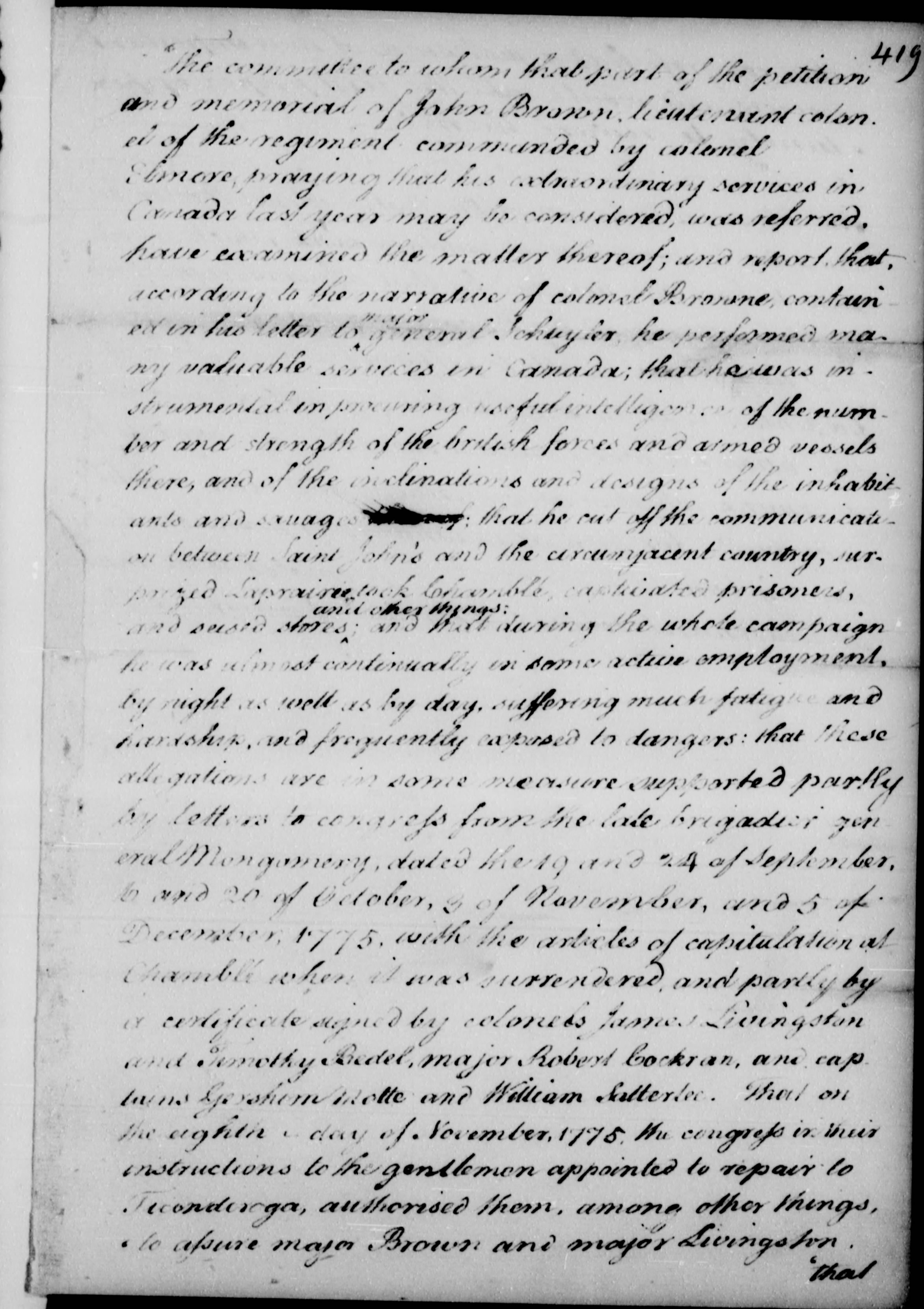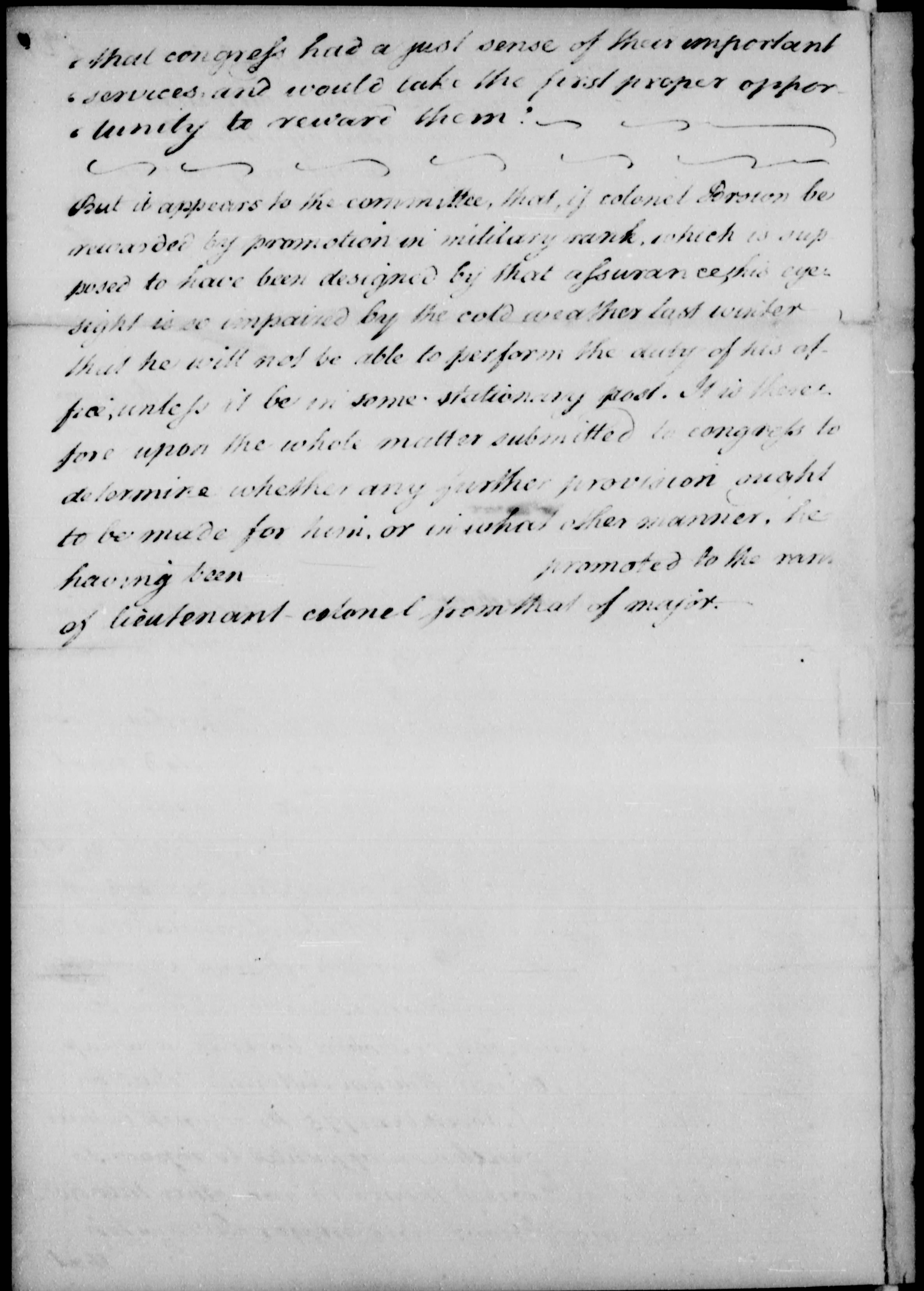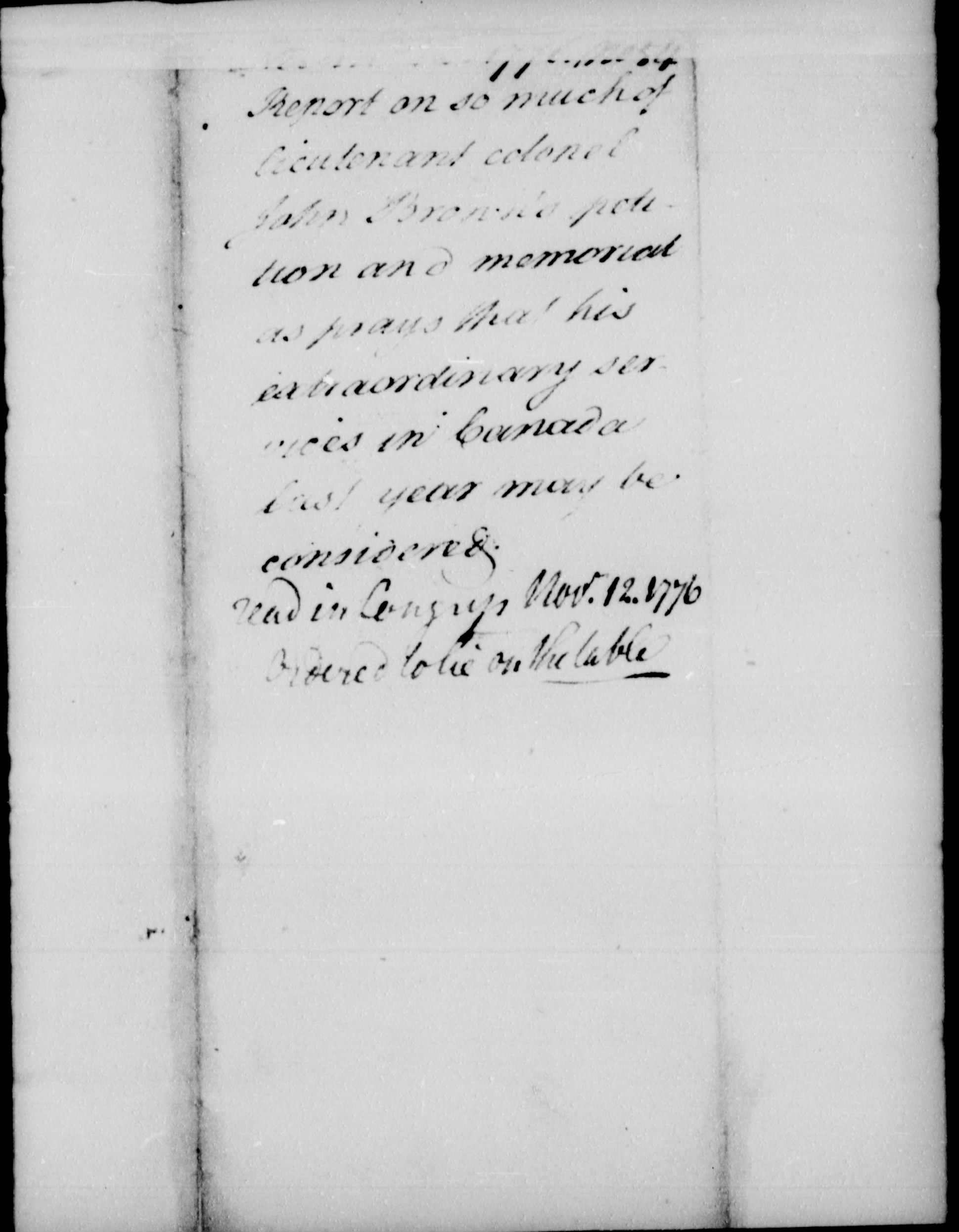Report of the Committee of Treasury, 12 November 1776

This draft of a petition in the handwriting of George Wythe, concerning Major John Brown (1744-1780) for promotion in consideration for his service during the Canada Campaign, was presented to the Second Continental Congress in 1776. Brown played a key role in the conquest of Fort Ticonderoga in 1775 by Colonial Forces.
The petition is endorsed as being read in Congress on November 12. The text of the final report was published in the Journals of the Continental Congress (1906).[1]
Contents
Document Text, November, 1776
Page 1
The committee, to whom that part of the petition and memorial of John Brown, Lieutenant Colonel of the regiment commanded by Colonel Elmore, praying that his extraordinary services in Canada last year may be considered, was referred, have examined the matter thereof; and report, that, according to the narrative of Colonel Browne, contained in his letter to Major General Schuyler, he performed many valuable services in Canada; that he was instrumental in procuring useful intelligence of the number and strength of the british forces and armed vessels there, and of the inclinations and designs of the inhabitants and savages; that he cut off the communication between Saint John's and the circumjacent country, surprized Laprairie, took Chamblé, captivated prisoners, and seised stores and other things; and that during the whole campaign he was almost continually in some active employment, by night as well as by day, suffering much fatigue and hardship, and frequently exposed to dangers; that these allegations are in some measure supported partly by letters to Congress from the late Brigadier General Montgomery, dated the 19 and 24 of September, 16 and 20 of October, 3 of November, and 5 of December, 1775, with the articles of capitulation at Chamblé when it was surrendered, and partly by a certificate signed by Colonels James Livingston and Timothy Bedel, Major Robert Cockran, and Captains Gershom Motte and William Satterlee. That on the eighth day of November, 1775, the Congress in their instructions to the gentlemen appointed to repair to Ticonderoga, authorised them, among other things, to assure Major Brown and Major Livingston,

Page 2

Page 3
see also
- Report of the Committee for Indian Affairs, 4 November 1776
- Report of the Committee on the Northern Army, 28 November 1776
- Report of the Committee on the Northern Army, 29 November 1776, No. 13
- Report of the Committee on the Northern Army, 29 November 1776, No. 14
References
- ↑ Journals of the Continental Congress, ed. Worthington C. Ford, Vol. 6, October 9-December 31, 1776 (Washington, D.C.: Library of Congress, 1906), 942-943.
External links
- Read this document in Google Books
- View this document at Fold3.